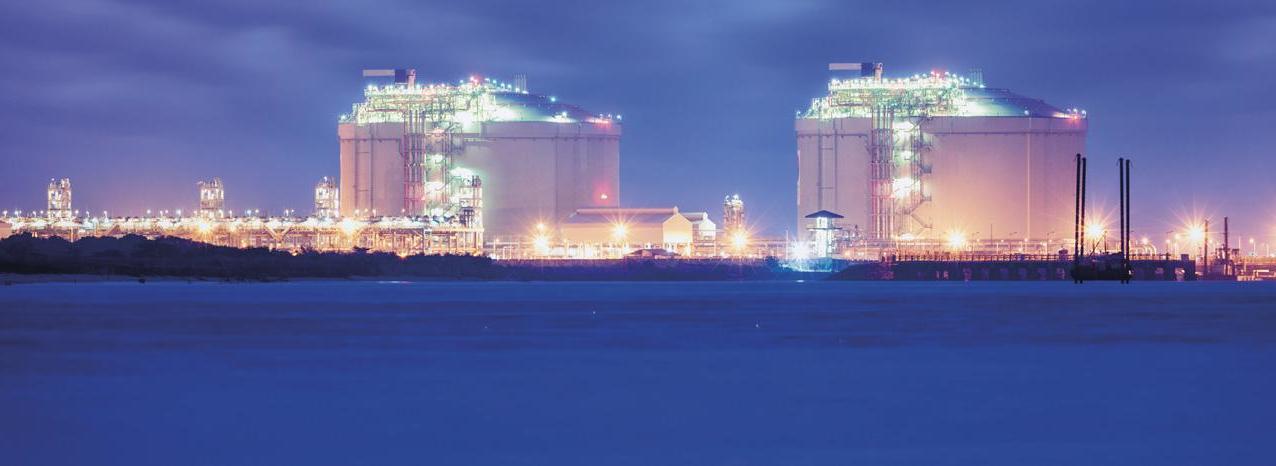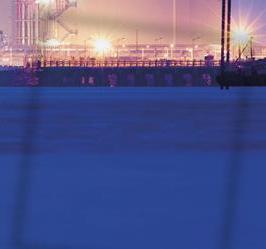
4 minute read
Comment
LYDIA WOELLWARTH EDITOR

COMMENT

In 2020, when trying to look ahead beyond the days of the global pandemic, June 2021 for me was going to be all about Daegu, Korea, and the World Gas Conference (conducted by the International Gas Union), but alas the event is now destined for 2022. Instead this month, the International Gas Union has gifted the industry with its 12th annual World LNG Report – a source of deep insight and varied knowledge into the unusual year the industry has experienced.
According to the report, LNG has had a remarkable capacity in traversing through the global crisis, achieving an increase in trade of 1.4 million t from 2019’s figure, enlarging the shipping fleet by an additional 35 new vessels, and increasing global regasification capacity by 19 million tpy – to select just several impressive feats achieved by the industry.
Eloquently described by the President of the International Gas Union, Joe M. Kang, “It is because of our industry’s frontline – those who run the production plants and terminals, sail ships, manage pipelines and ports – that the lights stayed on, buildings were heated or cooled, families were able to prepare meals, medical professionals were able to treat patients, and the world was able to switch to working remotely, seamlessly.”
Bringing focus to those employed in the LNG Industry and the value they provide is incredibly topical, particularly the need for companies to upskill their people. In recent conversation with Schulte Group as part of LNG Industry’s Spotlight sessions, attention was drawn to maintaining high levels of safety in the industry and the importance of ensuring seafarers are receiving specific training and development. On a similar tangent, a session with Linde Engineering explored the use of virtual reality training and the benefits of centralised knowledge to avoid the dreaded brain drain. These Spotlights, plus more, can be viewed on our website, and I strongly encourage you to take a look.
Having discussed with Schulte Group how the LNG industry keeps safety as a key priority, it was interesting to read recently about experiences at the opposite end of the scale – namely the safety of employees from multinational company Amazon. A study in the US which considered data from 2017 - 2020 discovered that Amazon workers had 5.9 serious injuries per 100 people.1 Essentially, if you work in an Amazon warehouse you are more likely to be injured than workers in other warehouses, and also the injuries will be more serious. Amazon has since stated that it invested more than US$1 billion into workplace safety in 2020, so perhaps the company is learning that speed isn’t everything and valuing worker safety is responsible and economically beneficial.
It is common knowledge that Amazon warehouses are run by a team of humans plus robots, and during the last year, the acceptance of digitalisation and reduced manual processes has become more normal within the LNG industry. The World LNG Report explains how operations have adapted to minimise human involvement, whereby cargo loading and unloading can now take place with no interaction between vessel and external crews. Moreover, relying on digital documents rather than paper-based files is also more commonplace. In fact, this isn’t solely a new shift for the LNG industry, with employees across the world now working from home and unable to access the speedy, vibrant colour printers found in office buildings, and equally unable to physically pass hard copy documents from one colleague to another.
The LNG industry has proven its resilience and flexibility during the last year, and while this month I cannot write about the great plans of food and culture I had in mind for Korea, the positivity from the World LNG Report inspires confidence that 2022 will be a year to remember.

1. BBC News, ‘Amazon warehouse injuries ‘80% higher’ than competitors, report claims’.
Managing Editor James Little james.little@palladianpublications.com Editor Lydia Woellwarth lydia.woellwarth@palladianpublications.com Editorial Assistant Sarah Smith sarah.smith@palladianpublications.com Senior Editor Elizabeth Corner elizabeth.corner@palladianpublications.com Sales Director Rod Hardy rod.hardy@palladianpublications.com Sales Manager Will Powell will.powell@palladianpublications.com Production Calli Fabian calli.fabian@palladianpublications.com Website Manager Tom Fullerton tom.fullerton@palladianpublications.com Digital Events Co-Ordinator Louise Cameron louise.cameron@palladianpublications.com Admin Manager Laura White laura.white@palladianpublications.com Digital Editorial Assistant Bella Weetch bella.weetch@palladianpublications.com
LNG Industry Subscription rates: Annual subscription: £50 UK including postage £60 overseas (postage airmail) Two year discounted rate: £80 UK including postage £96 overseas (postage airmail) Subscription claims: Claims for non receipt of issues must be made within 3 months of publication of the issue or they will not be honoured without charge. Applicable only to USA & Canada. LNG Industry (ISSN No: 1747-1826, USPS No: 006-760) is published monthly by Palladian Publications Ltd, GBR and distributed in the USA by Asendia USA, 17B S Middlesex Ave, Monroe NJ 08831. Periodicals postage paid New Brunswick, NJ and additional mailing offices. POSTMASTER: send address changes to LNG Industry, 701C Ashland Ave, Folcroft PA 19032.










